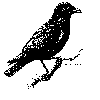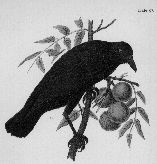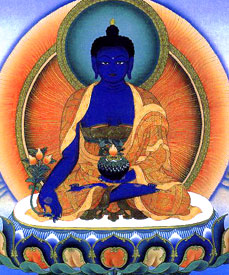
JCROWS.COM
Hallucinogen May Cure Drug Addiction

JCROWS.COM
Hallucinogen May Cure Drug Addiction
BAY AREA (KRON) -- Drug addiction has been the plague of modern America.
But that could now change forever. What started as a rumor may now actually
be an incredible breakthrough in the battle against addictions of all kinds.
Ibogaine has a number of strikes against it:
• It doesn't come from a modern laboratory, but from an ancient plant.
• It was discovered not by a scientist, but by a heroin addict.
• It is mildly hallucinogenic and completely illegal in the United
States.
However, when it comes to curing addiction, a reputable scientist believes
ibogaine is nothing short of a miracle. "I didn't believe it when I first
heard about ibogaine. I thought it was something that needed to be debunked,"
admits Dr. Deborah Mash, professor of Neurology and Molecular and Cellular
Pharmacology at University of Miami.
Dr. Mash is one of the few scientists in the world to study ibogaine,
a mild hallucinogen that comes from the root of a shrub found in West Africa
and was rumored to have the amazing ability to help drug addicts kick their
addiction.
"This didn't come from the Salk Institute, this didn't come from the
Scripps Institute. This came from a junkie who took a dose to get high
himself. So the original observation came from the underground," says Dr.
Mash.
Observations from this particular underground are not likely to gain
the respect of mainstream society, and ibogaine was no exception.
That first report came in 1962. But decades would pass with little
scientific investigation. There were decades during which the cost of addiction
in terms of medical care, lost productivity, crime and incarceration rose
to $160 billion a year.
The human toll was impossible to calculate.
Patrick Kroupa was a heroin addict for 16 of his 35 years. "It was
a very high level of desperation. I had been pretty successful in my life,
I had accomplished a lot of things I wanted to do, and then repeatedly
I just watched everything burst into flames and disintegrate because I
could not stay off heroin," confesses Patrick. "It gets very tiring living
like a slave because you keep chasing this and it's like you're not getting
high, it's just 'I must do this every single day just to get normal so
I can function.'"
Like most addicts, Patrick tried to quit. But treatment for addiction
is notoriously ineffective. Only one in ten addicts manages to return to
a drug-free life. Most stay dependent on illegal drugs or their legal substitutes,
like methadone.
"And I was a spectacular failure at every possible treatment modality,
every paradigm, every detox, every therapy, nothing ever worked," admits
Patrick.
Even as Patrick Kroupa despaired of ever kicking heroin, Dr. Mash was
petitioning the Federal Food and Drug Administration to allow a scientific
test of ibogaine, which by this time had been classified as a "schedule
one" drug on a par with heroin. In 1993, the FDA approval came through.
"We were established, we had a team of research scientists, doctors,
clinicians, psychiatrists, toxicologists and we wanted to go forward with
this," describes Dr. Mash.
But even with FDA approval, Dr. Mash could not get funding to look
into what was, after all, a counter-culture drug. In order to complete
her project, she had to leave South Florida and go offshore, to the island
of St. Kitts.
In 1998, clinical trials finally got underway. Patients were given
carefully prepared oral doses of ibogaine. What happened next astounded
the sceptical scientist.
"Our first round in St. Kitts, we treated six individuals, and I will
go to my grave with the memory of that first round," says Dr. Mash.
It quickly became apparent that one dose of ibogaine blocked the withdrawal
symptoms of even hard-core addicts and was amazingly effective for heroin,
crack cocaine and even alcohol.
There are two reasons why: The first, science can measure. The second
remains a mystery.
Dr. Mash admits, "I was really scared. I questioned my own sanity on
numerous occasions."
"I don't like the word 'hallucinogen,' but indeed, ibogaine alters
mental state. And what it seems to do is it puts people into a four to
six hour state of almost an active dream, it's like a lucid dream." she
describes.
But as Dr. Mash was about to discover, during that dream state, something
extraordinary happens. "We knew ibogaine was effective for blocking opiate
withdrawal, we saw it diminish the desire to use alcohol. And we saw the
cravings for cocaine blocked. I was hooked," she says.
Patrick admits, "It's literally like a miracle. Nothing has ever worked
and this just did." He was one of the 280 people in Dr. Mash's trial of
ibogaine.
"Patrick was one of the worst opiate addicts, worst heroin addicts
that I have ever enountered in my life," says Dr. Mash. His arms still
bear the scars of years of heroin addiction, and he knows only too well
what happened when the flow of drugs into those arms was interrupted. "When
you're going through withdrawal, you're sweating, you're shaking, you're
freezing, you're hot, it feels like your spine is being smashed in a vise,
it's pain," describes Patrick.
Within 45 minutes of taking ibogaine, he actually felt his addiction
leaving him. "That moment is the first time in about 10 years that I had
actually been clean. Not just detoxed, but clean. That was it. That was
the first time. That was like a miracle," says Patrick
That was four years ago. Patrick Kroupa has not touched drugs since.
"I'm saying this having been on heroin for my entire adult life. I mean,
14 to 30 is a long time," he says.
On one level, Dr. Mash understands some of what happens. Ibogaine in
the body is metabolized into another compound called 'noribogaine.' Noribogaine
appears to reset chemical switches in the brain of an addict.
"The noribogaine resets that, so it resets the opiates, blocks the
opiate withdrawal, diminishes craving and the desire to use, and it elevates
mood," say Dr. Mash.
But of the "visions" that people see, Dr. Mash understands very little
-- only that they are somehow significant to the outcome. "It's as if the
plant is teaching you something fundamental about who you are as a person
and why you've got yourself locked into this intractible pattern of behavior,"
she says.
Ibogaine will not work for everyone. And even for those for whom it
does work, it is not a "magic bullet." "You need treatment, you need social
workers, you need case management, you need medication, psychiatry, you
need the whole boat of professionalism around this," says Dr. Mash.
But for Patrick Kroupa and many of the other addicts in the trials,
ibogaine was a miracle. "It's like if you suffer from terminal cancer and
somebody goes by and says, 'Oh, yeah, we cured that. We passed this thing
over you and it's gone,'" he says.
Even the reserved scientist believes this ancient drug from Africa
holds astounding promise for the modern world. "I think we're going to
see fantastic numbers. I think these numbers are going to be stunning,"
says Dr. Mash.
Dr. Mash will present her findings to the Food and Drug Administration
next month. She hopes the FDA will eventually authorize further testing,
based on her results. In the meantime, ibogaine remains illegal in the
United States.
Ibogaine is advertised on the internet, but there is no guarantee of
the quality unless it's given under medical supervision. And for now, that
can only be done overseas.
For ibogaine detox information, contact Healing Transitions at 1-888-426-4286
or www.Ibogaine.net
Feb 18 2004
Pubdate: Thu, 25 Oct 2007
Source: Georgia Straight, The (CN BC)
Copyright: 2007 The Georgia Straight
Author: Alex Roslin
Could the root of an African shrub hold the key to getting millions
of
addicts off heroin, coke, and crack - oh, yeah, and cure alcoholism
in
its spare time? Can a single dose of an extract from the mysterious
shrub's root bark be worth years on a therapist's couch?
Some of the answers may soon be found in a three-bedroom house on the
Sunshine Coast. Tucked away there on a hill, with a stunning view of
the ocean and surrounded by tall trees, is the Iboga Therapy House.
Forty years after globetrotting backpackers introduced a substance
called ibogaine into the U.S. drug culture, the extract from western
Africa's Tabernanthe iboga shrub has become an underground rage among
drug-addled Hollywood celebs willing to plunk down between $3,500 and
$10,000 for ibogaine treatment at any one of about a dozen unregulated
clinics worldwide, including the one in B.C.
Because ibogaine is illegal in the U.S. - one of just three countries
to ban the substance, along with Belgium and Switzerland - clients
have to travel to clinics in countries such as Canada, Mexico, Costa
Rica, and Slovenia for an "ibogaine experience".
Advocates liken the miracle drug - which can unleash a reality-
shattering trip so powerful it has been described as "dying and going
to hell 1,000 times" - to the Holy Grail of addiction cures,
comparable in importance to the discovery of penicillin. Although
ibogaine's alleged ability to quickly cure opiate addiction without
withdrawal symptoms was discovered relatively recently, the substance
has long been used in Gabon by hunters to stay alert and, in larger
doses, in week-long sacred ceremonies in the Bwiti religion.
Yet despite the extraordinary claims about ibogaine's powers, a B.C.
study launched last February is the first time the drug's therapeutic
benefits for opiate addiction are being measured systematically in
a
public investigation. (Other clinics haven't released data.)
Preliminary results from the Sunshine Coast clinic have justified much
of the hype. "I've witnessed people's lives being turned around," said
Leah Martin, one of the study leaders. Of 20 pre-study clients who
took ibogaine at the facility in 2004, 13 were found to be abstaining
when evaluated later, after an average interval of six months. The
abstainers included six out of seven cocaine or crack addicts, three
of eight opiate addicts and four of five people with other addictions,
including to meth and multiple substances.
With an overall abstinence rate of 65 percent, ibogaine does way
better than the 10-percent average of conventional drug-treatment
programs, Martin said. What's more, the clients at the B.C. facility
are usually the hardest cases.
[snip]
Advocates say the drug isn't addictive itself partly because the trip
is so hellacious. "It is not a recreational drug," said Rick Doblin,
president of the California-based Multidisciplinary Association of
Psychedelic Studies, which is helping to fund the Iboga Therapy House
study. Doblin is also the principal investigator.
The ibogaine work is just one of MAPS's stable of groundbreaking
research projects. The group is also funding the first-ever studies
of
therapy involving ecstasy, LSD, and magic mushrooms to deal with
mental-health issues like posttraumatic stress, end-of-life anxiety,
and obsessive-compulsive disorder. The U.S. studies all have an
official okay from the U.S. Food and Drug Administration and even of
the drug warriors at the Drug Enforcement Agency, and are attracting
interest from the U.S. military for treating PTSD among Iraq vets.
[snip]
Continues: http://www.mapinc.org/drugnews/v07/n1235/a06.html
 |
Nyen Diseases in Tibetan Medicine,
Dr. Trogawa
Cause of Diabetes
According to the Tibetan Medical Sources, Dr. Trogawa
An
Interview with Eliot Tokar regarding his studies with Dr. Trogawa, Dr.
Dhonden and others (pdf)
Transformation
and Balance:
The
Principles of Tibetan Medicine in the Context of American Healthcare, Eliot
Tokar (pdf)
Experts Defining Mental Disorders Are Linked to Drug Firms
Pictures from Tibet and Ladakh Circa 1986

Medicine Buddha holding myrobalan
|
|
|
|

"Tibetan incense, medicinal powder, and
Tibetan 'precious pills' are in
great demand here," said one police officer who asked not to be
named.
"People believe that it can prevent the virus. And SARS hasn't spread
to Tibet."
Radio Free Asia-May 7, 2003
|
|
|
|



Handbook of Traditional Tibetan Drugs:Their
Nomenclature,Composition, Use and Dosage

![]()
1912 Tibet Stamp Sheet Originals
From Which Our Reprints Have Been Made
____________________________________
|
|
|
|
Calling drug and alcohol hotlines in case of a drug emergency is a smart thing to do.
 |